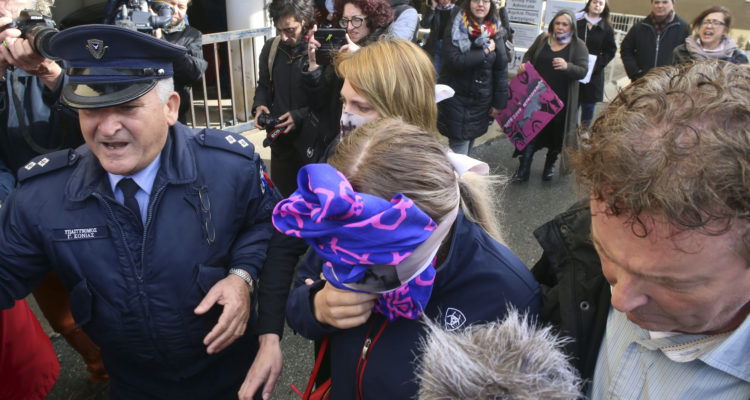The Israeli suspects were eventually freed from custody after the British teen admitted 10 days later that she was not raped.
By World Israel News Staff
An unidentified 19-year-old British teen who claimed that 12 Israelis gang-raped her during her vacation in Cyprus was found guilty on Monday in a Cyprus court of “causing public mischief,” which carries a sentence of up to one year jail time and a fine of $1,900 dollars.
In his ruling, Judge Michalis Papathanasiou said the defendant tried to deceive the court with “convenient” and “evasive” statements.
“She did not make a good impression on the court,” he said. “She was never clear on what happened. She was not stating the truth, and I reject the version she gave.”
The judge said that the teen fabricated the rape story because she was ashamed after finding out that her consensual sex with her Israeli boyfriend was recorded on video by his friends.
Cyprus authorities arrested 12 Israeli teenagers on July 17 following the teen’s report of being gang-raped by them at a hotel in the popular tourist resort of Ayia Napa, where she and the Israelis were staying.
The Israeli tourists were eventually freed from custody after the British teen admitted 10 days later during questioning that there had been sexual contact with the suspects but that she was not raped. Following her confession, the woman was arrested for filing a false complaint of gang rape.
During the trial, her lawyers argued that the teen felt intimidated by investigators during the interrogation and that she feared for her life if she didn’t sign the retraction. They also argued that she was suffering from PTSD at the time of her recantation.
According to Cyprus law, the questions asked during police interrogation are not required to be recorded.
Women’s rights groups reacted with anger to the guilty verdict.
“There are various complex reasons why a victim of sexual violence may retract their allegation. They might be traumatized and vulnerable, and have a lack of confidence in or fear of the justice process, especially if they have been subjected to prejudicial attitudes and negative gender stereotypes by the investigating authorities,” Alexandra Patsalides, a human rights lawyer from Equality Now told the Telegraph.
A group of protesters from the Network Against Violence Against Women with gags over their mouths were present at the trial.
As the defendant was leaving the court they shouted: “We are with you. We know. We believe you.”





